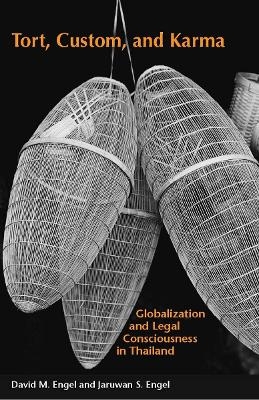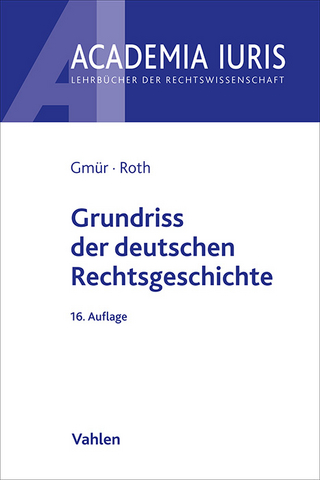
Tort, Custom, and Karma
Globalization and Legal Consciousness in Thailand
Seiten
2010
Stanford University Press (Verlag)
978-0-8047-6382-0 (ISBN)
Stanford University Press (Verlag)
978-0-8047-6382-0 (ISBN)
This colorful portrait of law and society during a period of rapid social change reaches a counter-intuitive conclusion about the role of law in injury cases: globalization has led ordinary Thai people to turn away from courts and lawyers and to embrace a form of religious practice that leaves them without any remedy for harms they have suffered.
Diverse societies are now connected by globalization, but how do ordinary people feel about law as they cope day-to-day with a transformed world? Tort, Custom, and Karma examines how rapid societal changes, economic development, and integration into global markets have affected ordinary people's perceptions of law, with a special focus on the narratives of men and women who have suffered serious injuries in the province of Chiangmai, Thailand.
This work embraces neither the conventional view that increasing global connections spread the spirit of liberal legalism, nor its antithesis that backlash to interconnection leads to ideologies such as religious fundamentalism. Instead, it looks specifically at how a person's changing ideas of community, legal justice, and religious belief in turn transform the role of law particularly as a viable form of redress for injury. This revealing look at fundamental shifts in the interconnections between globalization, state law, and customary practices uncovers a pattern of increasing remoteness from law that deserves immediate attention.
Diverse societies are now connected by globalization, but how do ordinary people feel about law as they cope day-to-day with a transformed world? Tort, Custom, and Karma examines how rapid societal changes, economic development, and integration into global markets have affected ordinary people's perceptions of law, with a special focus on the narratives of men and women who have suffered serious injuries in the province of Chiangmai, Thailand.
This work embraces neither the conventional view that increasing global connections spread the spirit of liberal legalism, nor its antithesis that backlash to interconnection leads to ideologies such as religious fundamentalism. Instead, it looks specifically at how a person's changing ideas of community, legal justice, and religious belief in turn transform the role of law particularly as a viable form of redress for injury. This revealing look at fundamental shifts in the interconnections between globalization, state law, and customary practices uncovers a pattern of increasing remoteness from law that deserves immediate attention.
David M. Engel is SUNY Distinguished Service Professor at the Law School of the University at Buffalo. His most recent book is Fault Lines: Tort Law and Cultural Practice (Stanford, 2009). Jaruwan S. Engel is an author, Thai language instructor, and translator, and was formerly Lecturer and Coordinator of the Thai Language Program at the University at Buffalo.
| Reihe/Serie | The Cultural Lives of Law |
|---|---|
| Zusatzinfo | 1 table, 3 figures, 14 illustrations |
| Verlagsort | Palo Alto |
| Sprache | englisch |
| Maße | 140 x 216 mm |
| Gewicht | 272 g |
| Themenwelt | Recht / Steuern ► Allgemeines / Lexika |
| Recht / Steuern ► EU / Internationales Recht | |
| Sozialwissenschaften ► Ethnologie | |
| Sozialwissenschaften ► Soziologie | |
| ISBN-10 | 0-8047-6382-8 / 0804763828 |
| ISBN-13 | 978-0-8047-6382-0 / 9780804763820 |
| Zustand | Neuware |
| Haben Sie eine Frage zum Produkt? |
Mehr entdecken
aus dem Bereich
aus dem Bereich
Buch | Softcover (2023)
Franz Vahlen (Verlag)
CHF 27,70
Sammlung des Zivil-, Straf- und Verfahrensrechts, Rechtsstand: 14. …
Buch | Hardcover (2024)
C.H.Beck (Verlag)
CHF 53,20


